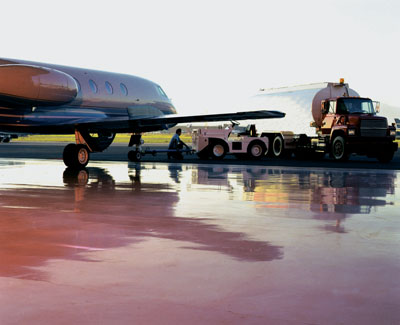
Features
Operations
Waypoint: CBAA out, Transport Canada in
Transport Minister John Baird’s March 16 announcement that the POC oversight is reverting to Transport Canada (TC) represents a major change for CAR 604 flight departments. It’s a key step involving CBAA POC operations and one that, in the opinion of many, is heading in entirely the wrong direction. This change is going to bear a significant cost in time and money – for everyone.
May 13, 2010 By Rob Seaman
Transport Minister John Baird’s March 16 announcement that the POC oversight is reverting to Transport Canada (TC) represents a major change for CAR 604 flight departments. It’s a key step involving CBAA POC operations and one that, in the opinion of many, is heading in entirely the wrong direction. This change is going to bear a significant cost in time and money – for everyone.

|
|
The 2003 changeover to the CBAA POC involved the development of unique SMS and Operations manuals. It cost operators time and money to do this. There were fees for audits and an annual POC/Membership levee. That said, it was generally understood while the new system might have “front-end loading,” the downstream benefits and saving would justify it.
Remember, too, that when CBAA first assumed POC oversight, it was also widely considered that if the 604 mandate stayed with TC, there would be increased recovery by government through a series of user service fees. Under the CBAA, however, the POC proramme was expected to cost less and involve more controlled and predictable charges in the long run.
With Minister Baird’s decision to switch everything around – again – all the parties involved in 604 ops now have to dig down and prepare for something that will without question involve more time and money. That is simply not fair or reasonable. It presumes that corporate aviation, as the old saying goes, keeps the bottom drawer in the desk full of money to just throw at the flight department needs.
On the government’s side, it would be fair to assume that the talent and resources once dedicated to bizav ops oversight, have, since 2003, been reallocated or lost. So, where is a government that just recently committed itself publicly not to spend money at this time, going to get the resources needed to reassume control of this user group? Once again, this is going to cost us all. Given that so much has changed in bizav since 2003, it would also be fair to assume TC will be facing a learning curve. This, too, will add both financially and in ways yet to be seen.
This “take-back” has been branded, by some, as a “boost” to bizav oversight. That is a hard one to take unchallenged. The old system, pre-CBAA, was cumbersome, antiquated, inflexible and by all judgment, not functioning for the reality of the users/operators. Approvals or changes took a long time. Renewals were red-tape strewn and time intensive. Generally, the resources required were stressed and that added to the overall inefficiency and frustration by CAR 604 operators. And there were incidents and accidents – albeit, very few. Is reverting back to that going to be an enhancement?
When CBAA POC was introduced, the government of the day advised that business aviation was a small group with a good enough operational safety record and it did not require the level of oversight others did. The program was developed through a lot of careful thinking, consideration and input from people who are knowledgeable about such things. It was not simply thrown out as an idea that seemed right at the time. So, what has changed? Has this been brought about by necessity, party line politics or simple bureaucracy?
On Dec. 1, 2009, Minister Baird said in the House of Commons the Government of Canada is “tremendously concerned with civil aviation safety. At my department (Transport Canada), that is one of our most important responsibilities. I do not support outsourcing safety testing or safety monitoring to the private sector. I think it is an important core responsibility of government and my department.” That statement sounds more like politics than anything else.
On the flip side, the Transportation Safety Board (TSB) did not indicate any safety concerns with the CBAA POC program in its investigation of two accidents involving business aircraft under the CBAA programme. Its recommendations were related to the quality assurance aspects of the CBAA audit programme, which was also a finding in Transport Canada’s assessment of the CBAA. TSB also noted that both TC and CBAA have taken steps since the incidents.
That makes this sound even more like politics. If that is the case, it is indeed not only a sad state of affairs, but it could also leave the door open for other expensive and involved reversals.
Rob Seaman is a Wings writer and columnist.